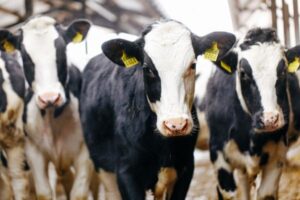
Relocation.com.ua has prepared an analysis of the Georgian residential real estate market in the first half of 2025: prices are rising, demand is leveling off, and rents are cooling down.
In June, 3,236 apartment deals were registered in Tbilisi, which is +11% y/y (−2% m/m) — the first noticeable rebound after the sluggish spring months, according to TBC Capital. The average asking price in the city is $1,266/m² (+6% y/y), and the average rental rate is $10.6/m² (−12% y/y).
In Tbilisi, 15,865 deals worth $1.2 billion (+2.6% y/y) were registered in the first five months of 2025, with the average price on the primary market in May at $1,331/m² and rent at $9.3/m².
As for Batumi, 7,129 transactions were registered in Batumi in the first half of 2025 (+4.8% y/y), with a total market volume of $397 million (+16.1% y/y). Weighted average prices: new buildings $1,184/m² (+16.1%), secondary market $1,169/m² (+20%).
According to Galt & Taggart’s assessment, sales growth continued in the second quarter in both the primary and secondary markets; rental rates in June were +1.6% y/y, and yields remain high compared to “pyramids.”
Earlier it was reported that the average gross rental yield in Batumi remains at around 8.8% (end of winter 2025).
Prices across the country: double-digit growth in annual terms
According to the Geostat housing price index, in Q1 2025, housing prices in Georgia were +11.53% y/y (in real terms, adjusted for inflation — +7.78%).
Against the backdrop of the high base of previous years, the issuance of permits in Tbilisi in 5M25 declined moderately (by area −1.1% y/y), and in May, 25 permits were issued for ≈203 thousand m² (−18.3% y/y). This is holding back supply growth and supporting prices in the primary segment.
After peaking in 2022–2023, rents in Tbilisi stabilized and fell to $9.3–10.6/m² in May, depending on the source and observation period. Gross yields in Tbilisi remain around ~8–11%, which is comparable to yields in resort locations.
Foreign buyers: activity continues, with Israelis playing a notable role
Government agencies do not usually publish official monthly breakdowns by nationality. However, a Galt & Taggart survey of systemic developers (covering ≈45% of the primary market in Tbilisi) found that buyers from Israel accounted for 11% of all sales in 5M25. Demand from local and “regional” buyers (Russia, Ukraine, Middle Eastern countries) is also significant, but the shares vary from project to project.
Analysts expect moderate, “healthy” growth while maintaining attractive returns in resort locations (Batumi) and a gradual recovery in demand in the capital as rates and incomes stabilize. External demand will remain selective (investment apartments and lots for short-term rent).

The volume of construction work performed in Ukraine in January-June 2025 reached UAH 92 billion 997.6 million, which is 8.15% higher than in the first half of 2024, according to data from the State Statistics Service (SSS).
The statistics agency reported that in the first six months of 2025, the volume of construction of engineering structures decreased by 3.5% compared to the same period last year, to UAH 49.7331 billion, compared to UAH 51.5498 billion in the same period last year. At the same time, the volume of work performed in residential construction increased by 11% to UAH 13 billion 684.6 million, and in non-residential construction by 33.7% to UAH 29 billion 579.9 million.
The share of new construction in the total volume of construction work performed in January-June was 43.6%, repairs – 29.6%, reconstruction and other work – 26.8%.
According to the State Statistics Service, in the first half of this year, the construction output index reached 102.4% compared to January-June 2024.
According to seasonally adjusted data from the agency, construction output indices in June 2025 were 56.3% in residential construction, in non-residential construction – 137.5%, in engineering construction – 167.6%, and taking into account the effect of calendar days, the figures are 57.1%, 131.1% and 159.4%, respectively.

As of August 1, 2025, there were 2 million 151.5 thousand head of cattle in the private and industrial sectors of Ukraine, which is 18 thousand head (-0.8%) less than a month ago and 8% less than a year ago, according to the Milk Producers Association, citing data from the State Statistics Service.
The industry association noted that the number of cows currently stands at 1.14 million, which is 5,800 (-0.5%) fewer than at the beginning of July this year and 9% fewer than a year ago. About 43% of animals are kept on industrial farms, and 57% on private farms.
The industrial sector has 923,500 head of cattle, which is 2,000 head more (+0.2%) than on July 1, 2025. The number of cows is 381,600 and has decreased by 500 head (-0.1%) over the last month. Over the past year, the number of cattle on enterprises has decreased by 1.7 thousand heads (-0.18%), but the number of cows has increased by 1.4 thousand heads (+0.4%).
There are 1.228 million head of cattle in the private sector, which is 20 thousand head less (-1.6%) compared to a month ago. As of early August 2025, the number of cows in private households was 758,800, which is 5,000 (-0.7%) less than a month ago. Over the past year, the number of cattle in private households has decreased by 192,000 (-14%), and the number of cows has decreased by 108,000 (-12%).
AVM analyst Georgiy Kukhaleishvili, whose words are quoted in the report, noted that the decline in cattle numbers is a long-standing problem in Ukraine due to the lack of an effective state program to support dairy farming, and the war has only exacerbated the situation. Currently, there is a sharp decline in livestock numbers in the east and south, with agricultural enterprises relocating cows from the Sumy, Dnipropetrovsk, and Kharkiv regions to safer regions in western and central Ukraine amid intensified Russian missile and bomb strikes on border and frontline settlements, the expert comments on the situation.
“Most farms in Ukraine were built in the 1970s and 1980s, and they no longer meet the requirements for keeping animals. The lack of premises suitable for keeping cows creates the conditions for a further reduction in livestock numbers. Many farmers are not investing in increasing their cow herds during the war because they are experiencing a shortage of working capital,” the industry association noted.
The UBA reminded that according to the study “Ukraine: the impact of war on the profitability of agricultural production,” conducted by the Ukrainian Agribusiness Club and the Ministry of Agrarian Policy with the support of the Global Facility for Disaster Reduction and Recovery (GFDRR), farmers’ production costs are rising faster than prices for finished products due to rising feed and electricity prices, as well as the devaluation of the hryvnia and a decline in the purchasing power of the population.

Industrial production in Ukraine grew by 2.9% in June 2025 compared to June 2024, after falling by 1.6% in May, in April and March by 6.4%, in February and January by 8.8% and 4.8%, respectively, according to the State Statistics Service (SSS).
Derzhstat specifies that the volume of industrial products sold in the first half of 2025 amounted to UAH 1,974.5 billion, of which UAH 346.7 billion was sold outside Ukraine.
Overall, industrial production in Ukraine fell by 3.9% in the first six months of this year compared to the same period last year, with the extractive industry and quarrying down 12.6%, in the supply of electricity, gas, steam, and conditioned air by 1.6%, and in the manufacturing industry by 0.6%. At the end of the first five months of 2025, a decline of 5.1% was recorded.
The growth in industrial production in June 2025 compared to June 2024 was due to the supply of electricity, gas, steam, and conditioned air (7.2%), manufacturing (5.7%), particularly in the production of computers, electronic, and optical products (62.4%), pharmaceuticals – by 36.6%, rubber and plastic products – by 13%, furniture – by 12.1%, textiles – by 9%, metallurgy and metal products – by 7.5%, in woodworking – by 4.7%, in machine building – by 2.9%, in the production of food products, beverages, and tobacco products – by 2.1%.
At the same time, the extractive industry and quarrying saw a decline of 5.6%, coal and lignite mining – by 19.4%, metal ores – by 16.1%, crude oil and natural gas – by 0.4%, However, a 6% increase in production was recorded in the extraction of other minerals and quarrying, and in the extraction of sand, stone, and clay – by 4.4%.
A decline in industrial production was also recorded in the production of coke (11.8%), electrical equipment (5.3%), and motor vehicles (2.9%).
The statistics office reported that industrial production in June 2025 decreased by 1.8% compared to the previous month.
As reported, industrial production in Ukraine in 2024 increased by 4.6% according to revised data.

The amount of tourist tax paid in January-July 2025 amounted to UAH 178 million, which is UAH 46.9 million, or 35.7% more than in the same period of 2024, according to the website of the State Tax Service (STS) of Ukraine.
According to a statement on the agency’s website on Tuesday, the leaders among the regions of Ukraine remain Kyiv (UAH 42.5 million to the local budget), Lviv (UAH 33.2 million), Ivano-Frankivsk (UAH 26.1 million), and Zakarpattia (UAH 15.3 million).
The STS reminded that the tourist tax is paid by citizens of Ukraine, foreigners, and stateless persons as an advance payment to tax agents before temporary accommodation in places of residence. Persons and children with disabilities, persons accompanying persons with disabilities of group I or children with disabilities, as well as veterans, are not subject to the tax. The list of tax agents that collect tourist tax is posted on local council websites.

Ukraine’s retail trade turnover in January-June 2025 increased by 6.3% compared to the same period in 2024, reaching UAH 1.213 trillion in nominal terms
These preliminary data were reported by the State Statistics Service (SSS).
According to its data, retail trade turnover in June 2025 increased by 7.3% compared to June last year, while in May 2025 it decreased by 0.5%.
The State Statistics Service specifies that the turnover of retail trade enterprises (legal entities) in January-June 2025 increased by 5.8% compared to January-June 2024 and amounted to UAH 841.153 billion.
At the same time, in June this year, compared to June 2024, the retail turnover of enterprises increased by 6.7%, while by May 2025 it decreased by 0.8%.
The State Statistics Service reminds that the data does not include territories temporarily occupied by the Russian Federation and parts of territories where hostilities are (were) ongoing.